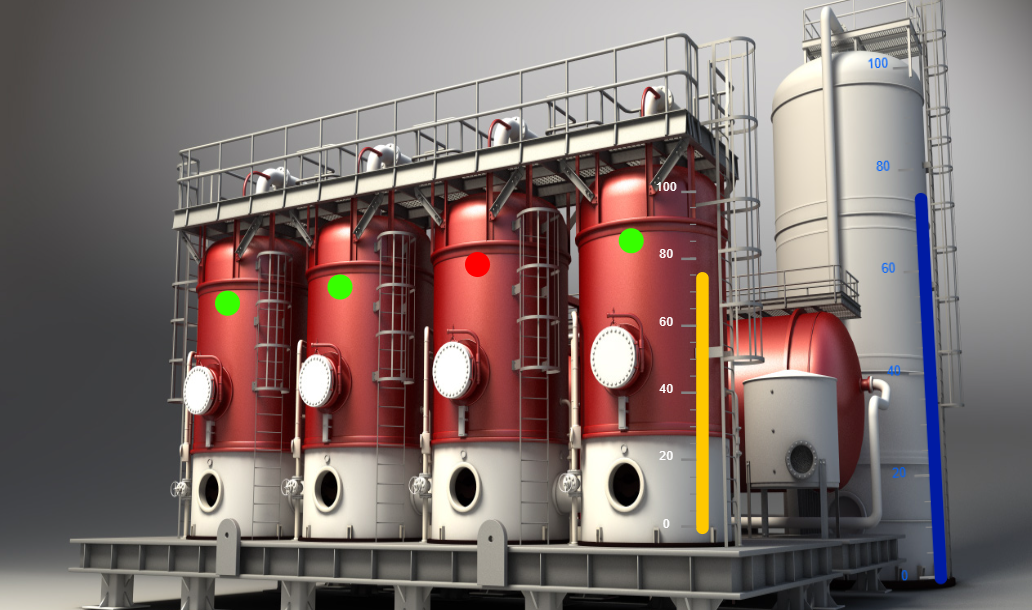What Is the Difference Between OPC and ODBC?
OPC (OLE for Process Control) and ODBC (Open Database Connectivity) are undeniably two separate technologies with distinct purposes that play a crucial role in the realm of data communication and integration. It is imperative to understand that
OPC SCADA is specifically designed to facilitate real-time data exchange between various industrial automation systems, whereas ODBC focuses on seamless connectivity and interaction with databases. OPC takes charge in enabling efficient communication between different hardware devices, software applications, and control systems within the industrial landscape. It ensures swift and reliable transmission of real-time process data, thereby optimizing operational efficiency and promoting effective decision-making. On the other hand, ODBC serves as a standardized interface for seamless interaction between database management systems (DBMS) and application programs. Its primary objective is to enable easy access to data stored in databases by providing a common set of functions that allow applications to query, insert, update, or delete records in a database. It’s important to note that while OPC primarily caters to the needs of industrial automation, ODBC offers immense value across various industries where robust database connectivity is essential. In summary, both OPC and ODBC hold their own significance in the world of data communication and integration. While OPC focuses on real-time data exchange within industrial automation systems, ODBC facilitates smooth interaction between application programs and databases. Understanding their unique purposes is crucial for harnessing their full potential in different domains.
First and foremost, it is crucial to understand that OPC (OLE for Process Control) is not just a mere set of standards and protocols, but rather a powerful and extensively recognized framework that serves as the backbone for seamless communication between various industrial automation systems. Specifically designed for applications like SCADA (Supervisory Control and Data Acquisition) systems, OPC ensures efficient data exchange, real-time monitoring, and reliable control within industrial environments. Its robustness and flexibility make it an indispensable tool in streamlining operations and enhancing productivity across industries. It significantly empowers and facilitates seamless interoperability among a vast array of devices and software applications in complex industrial environments. This transformative technology ensures that different systems can effortlessly communicate and work together, promoting efficiency, productivity, and streamlined operations. By breaking down barriers and fostering collaboration between diverse technologies, it paves the way for a harmonious integration that maximizes performance and unleashes the full potential of industrial processes. The use of OPC (OLE for Process Control) has revolutionized the way real-time data, alarms, and events are exchanged between various components of a control system. It provides a standardized and highly efficient method for seamless communication, ensuring that vital information is transmitted accurately and in real-time. OPC leaves no room for ambiguity or compatibility issues, making it the go-to choice for organizations looking to streamline their control systems and enhance overall operational efficiency.
On the contrary, ODBC is an incredibly powerful and essential API (Application Programming Interface) that facilitates seamless and efficient interaction between software applications and relational databases. It empowers developers to effortlessly integrate their applications with databases, enabling them to retrieve, update, and manipulate data with utmost ease and precision. ODBC serves as a critical bridge between software systems and databases, ensuring smooth communication and enhancing the overall functionality of applications. ODBC, or Open Database Connectivity, plays a crucial role in facilitating seamless data access and manipulation between various database management systems and applications. It serves as a powerful bridge, establishing a standardized method for effortlessly retrieving and manipulating data through SQL queries. By leveraging ODBC, businesses can ensure compatibility across different platforms, ensuring smooth data operations without any hiccups or inconsistencies.
While OPC does indeed focus on real-time data exchange in industrial automation, it is important to note that ODBC, on the other hand, primarily deals with providing seamless database connectivity for a wide range of general-purpose software applications. OPC ensures efficient and reliable communication between various devices and systems in the industrial setting, enabling real-time monitoring and control. On the other hand, ODBC plays a crucial role in facilitating smooth interaction between software applications and databases, allowing for seamless integration and retrieval of information. Both OPC and ODBC are essential tools in their respective domains, contributing to enhanced efficiency and productivity in different contexts.





